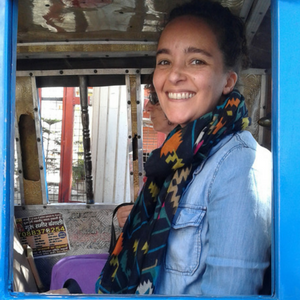
Today the Nobel Committee awarded the 2015 Peace Prize to the Tunisian National Dialogue Quartet, a coalition of four civil society organizations:
• Tunisian General Labour Union
• Tunisian Confederation of Industry, Trade and Handicrafts
• Tunisian Human Rights League
• Tunisian Order of Lawyers
The Committee credits the Quartet with fostering peace during a rocky moment in Tunisia’s transition to a constitutional democracy following the country’s Jasmine Revolution, which kicked off the Arab Spring.
Noting the difficulties Tunisians have yet to overcome, the Nobel Committee awarded the Quartet “as an encouragement to the Tunisian people, who despite major challenges have laid the groundwork for a national fraternity which the Committee hopes will serve as an example to be followed by other countries.”
When asked if the Quartet had a leader, the president of the Tunisian Confederation of Industry, Trade and Handicrafts said: “No, it’s a collaboration. We did it together, the four of us.”
Last year’s Peace Prize was shared by two individuals: Malala Yousafzai, the Pakistani champion of girls’ education, and Kailash Satyarthi, the Indian activist who helped guide a global movement to halt child slavery. Both 2014 recipients are exemplars of person power—they harnessed their inner strengths to courageously work for human freedom, inspiring countless others to create change with them.
Person power also spawned the Arab Spring: In December 2010, a fed-up 26 year-old named Mohammed Bouazizi immolated himself as a protest against repression in Tunisia. His public sacrifice—he set himself on fire in front of a municipal office—sparked the demonstrations that led to the downfall of the dictatorial Ben Ali presidency.
It may take just one match to light the proverbial love-in-action fires, but it takes many proverbial logs to keep those fires burning.
Thich Nhat Hanh, nominated for the Peace Prize by Martin Luther King, Jr. In 1967, describes the work of collective peace through the lens of Buddha:
We all need love. Without enough love, we may not be able to survive, as individuals and as a planet. It is said that the next Buddha will be named “Maitreya,” the Buddha of Love. I believe that Maitreya might not take the form of an individual, but as a community showing us the way of love and compassion.
Peace is an interdependent enterprise, and it’s encouraging to see the Nobel Committee recognize that. Congratulations to the Tunisian National Dialogue Quartet. May the Tunisian people indeed feel encouraged. May they serve as an example of lasting peace.








